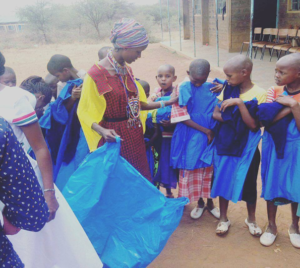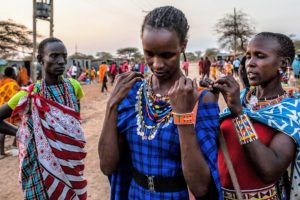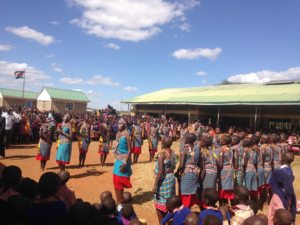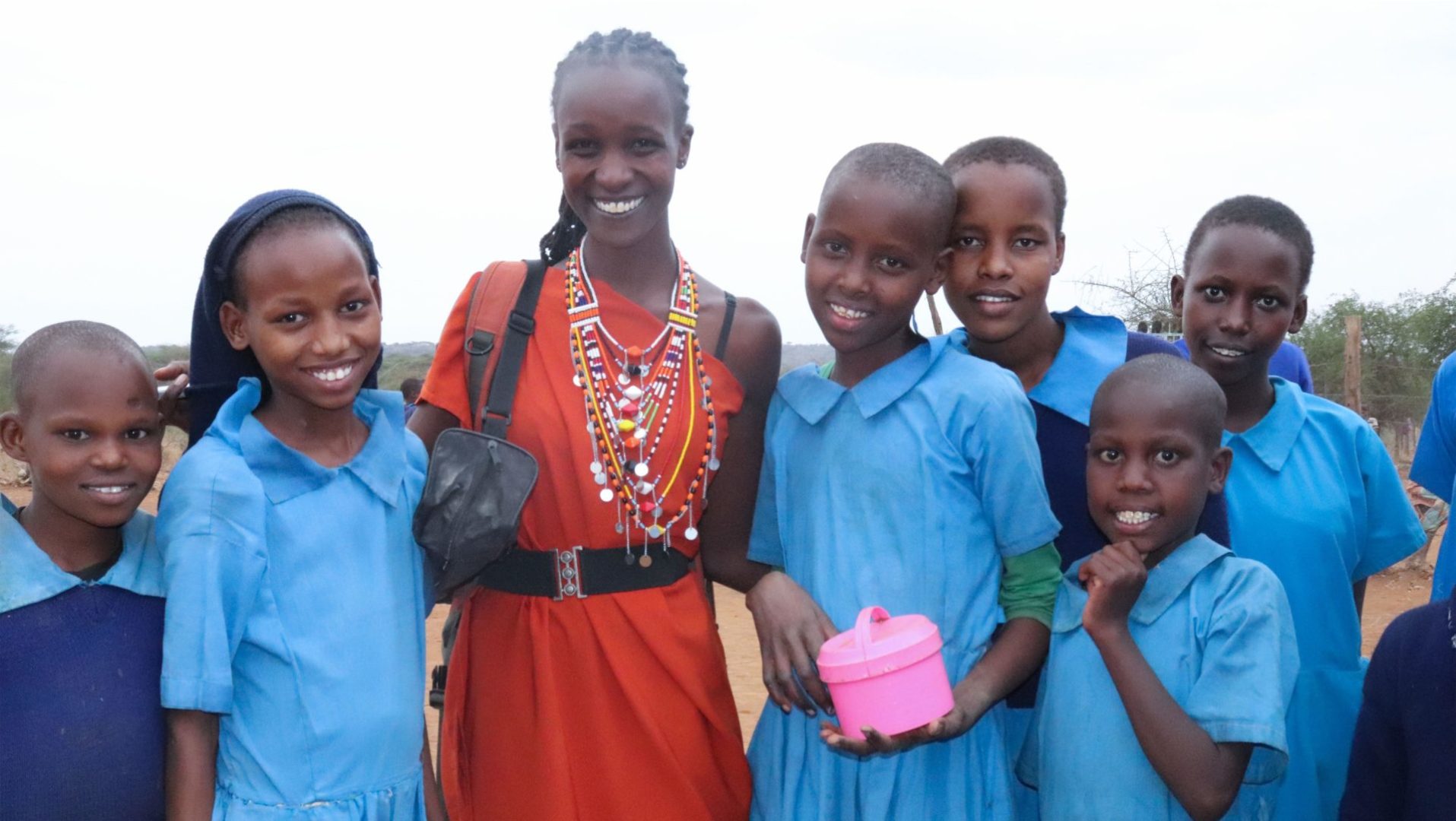Ending harmful practices and helping girls and women thrive: Q&A with Nashipai
Written by Olivia Nater | Published: February 24, 2023
Through our Global Partners program, Population Connection supports a growing number of grassroots organizations around the world working to increase access to education, public health and family planning services. Their efforts make a vital difference in their local communities and represent the “final step” in our shared work to make the world a more just and sustainable place for everyone.
Get to know our wonderful partners in this Q&A series! Below, Selina Nkoile, Founder of Nashipai Maasai Community Projects, tells us about her organization’s work to create a society free from violence against women and children and to ensure every girl is given a chance to thrive. Nashipai supports the Maasai community in Mosiro, Kenya, and was officially launched in 2017.
What prompted you to start your organization?

“Nashipai” is a Maasai word for “happy.”
Having grown up in the Maasai community, I saw girls struggle to access education, menstrual hygiene products, and reproductive health information, and I saw a lack of awareness around harmful cultural norms like female genital mutilation (FGM), child marriage, and teenage pregnancy. My community is also battling the effects of climate change such as degraded lands, lack of water, hunger, and more frequent and prolonged droughts.
I founded Nashipai to bring my community together and use grassroots interventions to solve these challenges. I wanted more girls to enroll in school and successfully transition to higher levels of learning by addressing the obstacles that stand in their way, to use sustainable regenerative agriculture to overcome extreme hunger and the impacts of drought, as well as to create awareness and mentorship on reproductive health and harmful practices which continue to affect the health and well-being of girls and women in my community.
Together, Nashipai envisions an empowered, thriving, and happy society that is free from all forms of violence against women, girls, and all children.
What programs or projects are you currently working on?
Education For All is our sponsorship/bursary program for students from the most vulnerable families and those affected by the ongoing devastating drought.
Our school and community gardens help alleviate hunger and sustain children in schools as well as educate the community on alternative sources of nutrition and food security amidst ravaging droughts caused by climate change.
Our mentorship, school outreach, and child protection programs provide training on reproductive health and menstrual hygiene, trauma management, and children’s rights in order to fight teenage pregnancies, early forced marriage, and the resulting school drop-out.
Our Women Economic Empowerment program trains Maasai women in income-generating activities, such as bead work, to address extreme household poverty.
What do you hope to achieve in the next five years?

We hope to reduce household hunger and poverty through our community and school permaculture gardens and to build an empowered community with various alternative sources of livelihood through financial and skills acquisition programs.
We want to generate more support for girls’ education in the community and facilitate successful transitions from primary (elementary) to high school to tertiary (university/college) levels of schooling.
We envision building a bead work workshop to help women scale up their production. We also would like to host a weekly farmers market at Bomanoma (an organic farm and eco-lodge I run with my husband) and sell produce from established kitchen gardens.
What have been some of the greatest challenges you have faced?
One of our main constraints is limited resources, especially financial, to implement essential projects such as improving access to safe water.
The effects of the ongoing drought are causing extreme hunger, with children going to school on empty stomachs, others dropping out of school because their family is moving their cows to new areas, and girls having to take on family responsibilities.
The retrogressive cultural practices of FGM and child marriage continue to be two of the greatest enemies of girls’ education in Maasailand.
In addition, it is difficult to reach many beneficiaries due to limited means of transportation and the vast and remote nature of our area.
What are you most proud of?

We are proud that we have been able to renovate, rehabilitate, and restore Naning’oi Girls School and rescue center, which was on the verge of closing down in 2017 but now has over 400 students who have hope and a future through education.
Our resilience and determination in making our Maasai community a better place through community outreach, media campaigns on local radios, mentorship, and support of girls has led to 100% of girls going on to high school, beating the norm of grade 8 drop-out. There has also been an increase in the performance and retention of learners in school thanks to our school feeding programs.
The recently disbursed education grant from Population Connection, allocated to over 70 beneficiaries from high schools and universities, has made it possible for these girls to continue with their schooling. This has been especially helpful in light of the ongoing drought, which has affected livelihoods and increased the risk of girls dropping out of school due to teenage pregnancies and child marriage.
Anything else you’d like to share with Population Connection members?
Even though we are thousands of miles apart, we are grateful that you are able to support and empower our Maasai community through our grassroots organization, to help people take control of their own lives and make our community a better place.
The world is a better place with people like you in it.
Thank you for holding the space for us, we feel heard and seen.
ASHE (thank you in Maa).
To learn more about Nashipai, visit their website and follow them on Facebook and Instagram and Twitter!

